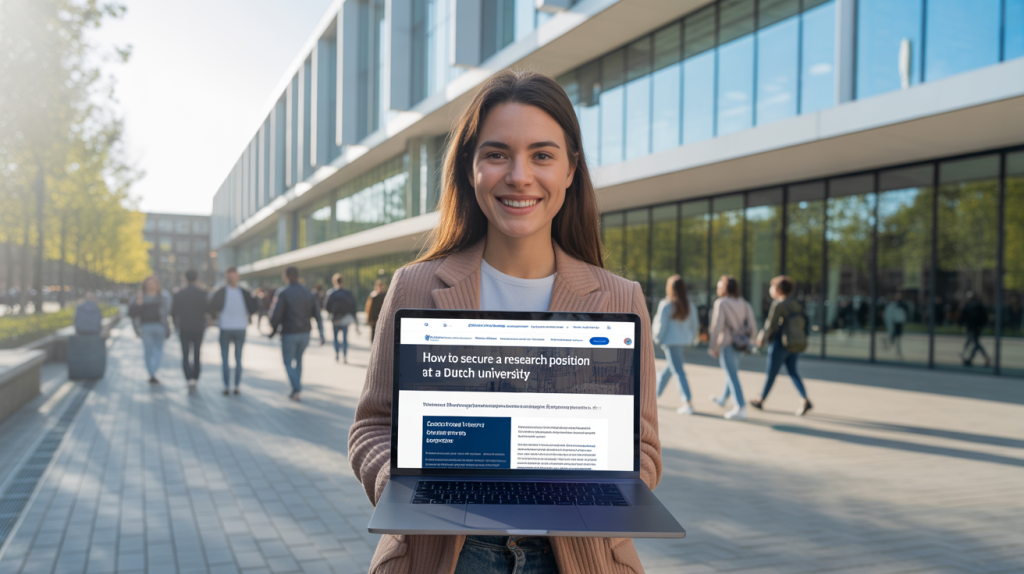How to Secure a Research Position at a Dutch University: A Comprehensive Guide
Types of Research Positions at Dutch Universities
The Netherlands has established itself as a global leader in academic research, attracting talented scholars from around the world.
PhD Positions
PhD candidates in the Netherlands are typically employed as salaried researchers, distinguishing the Dutch model from many other countries. Key characteristics include:
- Employment Status: PhD students are paid employees rather than tuition-fee-paying students.
- Duration: The program usually lasts for a minimum of four years.
- Responsibilities: Besides conducting research, candidates often contribute to teaching and administrative tasks within their departments.
- Creation of Positions: PhD roles are primarily generated through research groups and institutional proposals focused on specific research areas.
Post-Doctoral Positions
Postdoctoral fellowships provide an essential stepping stone for scholars looking to deepen their expertise after the PhD:
- Rubicon Programme: Supports talented researchers across various disciplines.
- Career Development: These positions facilitate continued research and collaboration opportunities.
Scientific Researcher Roles
Universities also recruit scientific researchers as staff members, balancing research with teaching components.
Eligibility Requirements for Research Positions
Academic Qualifications
- PhD Candidates: A recognized master’s degree is generally required.
- Post-Doctoral Applicants: Completion of a PhD is mandatory.
Language Proficiency
English language skills must be proficient at a high academic level for effective communication. Some programs may require Dutch proficiency as well.
Research Proposal
Submitting a detailed research proposal is essential, including:
- Research topic
- Objectives and significance
- Methodology and potential impact
Supporting Documents
- A comprehensive CV or resume
- Letters of recommendation
The Application Process: Step-by-Step Guide
- Identify Open Positions: Monitor job boards and announcements.
- Prepare Application Materials: Compile a structured proposal, CV, and recommendation letters.
- Application Submission: Follow submission instructions carefully.
- Interview Stage: Shortlisted candidates may be invited for interviews.
- Final Decision and Offer: Successful applicants receive formal offers.
Visa and Residence Permits for International Researchers
EU/EEA or Swiss Citizens
No work or residence permit is required.
Non-EU/EEA Citizens
- Must apply for appropriate visas or permits.
- Option to apply for an Orientation Year Residence Permit after completion of research.
The Unique Research Environment at Dutch Universities
- Innovative Research Approaches: Emphasis on cutting-edge methodologies.
- International Collaboration: Engagement with global partners is encouraged.
- Industry Connections: Strong ties foster applied research opportunities.
- Academic Freedom: Scholars enjoy liberty in pursuing investigations.
Advancing International Recruitment through Study in Netherlands
Understanding the nuances of research positions at Dutch universities is critical for effective recruitment. Study in Netherlands offers expert guidance and solutions to connect candidates with institutions efficiently.
Conclusion: Take the Next Step Towards Research Success in the Netherlands
Securing a research position involves academic preparation and strategic application. The Netherlands provides unparalleled opportunities for international scholars.
Take the Next Step with Study in Netherlands
Explore further to enhance your recruitment strategies or to assist candidates in their academic journeys.

